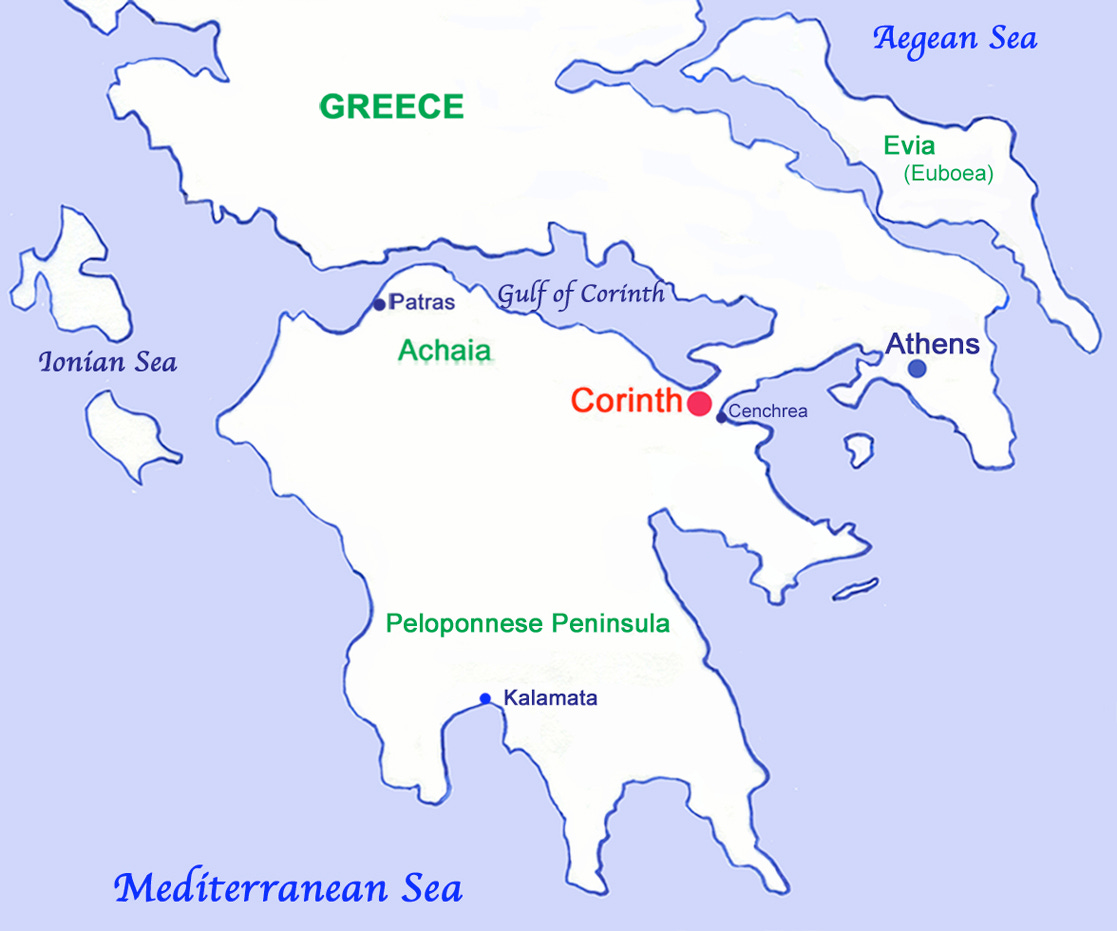
This article will conclude our series on the conversions found in the Book of Acts.
We have noticed a very distinct pattern: The Gospel was preached, heard, believed, and obeyed. Over the past several weeks, we have examined several conversion accounts including:
The 3,000 on the Day of Pentecost (Acts 2:38, 41).
Those in the city of Samaria (Acts 8:1-12).
“Simon the Sorcerer” (Acts 8:13).
The Ethiopian Eunuch (Acts 8:26-40).
The conversion of Saul of Tarsus (Acts 9).
The conversion of Cornelius (Acts 10).
The conversion of Lydia (Acts 16:11-15).
The conversion of the Philippian Jailer (Acts 16:25-34).
In this final article, we will explore the example of the Corinthians which serves as a summary statement for every conversion we have noticed in our study.
Paul travels from Athens to Corinth.
I invite you to Acts 18. Paul was in the city of Athens where he delivered the famous sermon on Mars Hill (Acts 17:22-34). While he was doing a good work and several were converted to Christ, he departed from Athens and went to Corinth.
The city of Corinth was a maritime city located at the southwest end of the Greek peninsula. Its location in Greece put it about fifty miles southwest of Athens. Corinth served as a very prosperous location as sailors and merchants traveled there frequently. Ships could be loaded and reloaded simultaneously which allowed for constant traffic, activity, and trading.
Corinth was the capital of Achaia and was a very prominent city. It was destroyed in 146BC, but a century later, Julius Caesar would rebuild it in white marble making it a very beautiful and attractive location.
When Paul arrived, Corinth had a population of 400,000, and it was the fourth largest city in the Roman Empire behind Rome, Alexandria Egypt, and Antioch Syria. The population there was largely Greek and it flourished from the 8th to 5th century.
There was in addition to the Greek influence a great deal of Roman influence as reflected by many Latin names found in the New Testament: Aquila, Priscilla, Crispus, Lucius, Gaius, Tertius, Erastus, Quartis, Fortunatus, and Achaicus.
What Corinth was like.
There was great diversity in this city which attracted Paul to come and bring the Gospel to them. While it was diverse and a beautiful location, it was a place of horrible immorality.
The word “corinthianize” was used to describe the wicked actions of a citizen of Corinth. There were cults and a vast confusion regarding religion. The Temple of Aphrodite, the goddess of love and fertility, sat atop the city of Corinth. On any given day, there were 1,000 prostitutes on duty!
Paul teaches in Corinth.
While many would look at this place as hopeless, Paul saw an opportunity. A study of Acts 18:1-18 in conjunction with 1st Corinthians 3:6, will show that Paul established the congregation in Corinth. Along with Aquila and Priscilla, Paul was aided by his fellow laborers in Silas and Timothy (Acts 18:5). He was encouraged by their help as they strove together for the cause of Christ.
With the space remaining, let’s consider Acts 18:8 as we notice the formula: “Then Crispus, the ruler of the synagogue, believed on the Lord with all his household. And many of the Corinthians, hearing, believed and were baptized.”
Crispus is mentioned in Paul’s first letter to the church at Corinth as one he had baptized into Christ (1 Cor. 1:14). Notice that he was a “ruler of the synagogue” so this conversion was massive for those in the area.
Crispus “believed on the Lord” with all his household. This is language consistent with the whole of responding to the Gospel: Hearing, believing, repenting, confessing the Deity of Christ, and being baptized into Christ. Crispus was specified, but then the text says that “many of the Corinthians, hearing, believed, and were baptized.”
How fitting is it that after all the conversion accounts we have studied that this one statement summarizes what they all did to become Christians! All three words (hearing, believing, and baptized) are verbs showing an action took place. These individuals in Corinth heard the truth and put their faith into action by obedience.
I appreciate all of you who have been on this journey with me throughout this study. I hope and pray that it has been helpful and that we can all clearly see the consistent, simple pattern with every conversion. May God bless you as you study His Word!
Drew Suttles is a minister for the Quitman church of Christ in Quitman, Georgia. They live-stream all their Bible classes and sermons on their YouTube channel.
Drew also hosts the “Weathering the Storm” podcast on the Scattered Abroad Network. Drew talks about facing life’s challenges as a child of God. His podcast will be a blessing to your life.




